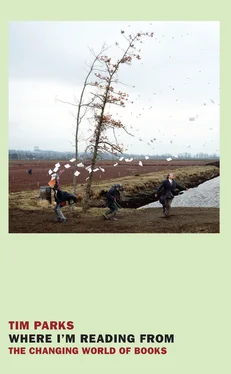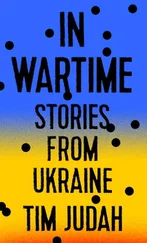Of course as a novelist it is convenient to think that by the nature of the job one is on the side of the good, supplying an urgent and general need. I can also imagine readers drawing comfort from the idea that their fiction habit is essential sustenance and not a luxury. But what is the nature of this need? What would happen if it wasn’t met? We might also ask: Why does Franzen refer to complex stories? And why is it important not to be interrupted by Twitter and Facebook? Are such interruptions any worse than an old landline phone call, or simply friends and family buzzing around your writing table? Jane Austen, we recall, loved to write in domestic spaces where she was open to constant interruption.
Proponents of the-world-needs-stories thesis are legion, but one of the more elaborate statements comes in Salman Rushdie’s novel Haroun and the Sea of Stories (1990). Here, in a text that falls between fable and magical realism, the telling of many stories is aligned with the idea of a natural ecology; in the normal and healthy way of things, we’re told, all the different stories of the world flow together in a great ocean of narrative. But now this harmony is threatened by an evil “cultmaster” who seeks to poison and eventually shut off the flow of stories, imposing universal silence and sterility as part of a bid for omnipotence.
Given Rushdie’s personal plight at the time of writing, it’s hard not to think of the “cultmaster” as a metamorphosis of the Ayatollah Khomeini. Stories are presented as a manifestation of the natural pluralism of the imagination, engaged in a mortal battle against any fundamentalism that would impose its own, univocal version: fiction is on the side of freedom. Of course.
Rushdie’s idea is charming, but his ocean-of-stories argument never, to risk a pun, holds water. Far from flowing together in a harmonious ecology, stories tend to be in constant competition with each other. Far from imposing silence, cults, religions, and ideologies all have their own noisy stories to tell. Christian fundamentalism with its virgin birth, miracles, exorcisms, and angels boasts a rich narrative flora; if we toss into the mix the Catholic saints and their colorful martyrdoms, we can hardly complain that the censorship and repression of the Inquisition resulted in storyless silence.
Rather the problem is that preacher and polemicist want us to accept just one, exclusive set of stories, one vision, which we must believe is true. And many people are happy to do this. Once they’ve signed up to a Christian, Muslim, Buddhist, or even liberal pluralist narrative, it’s unlikely they’ll go out of their way to research competing accounts of the world. People tend to use stories of whatever kind to bolster their beliefs, not to question them.
But I doubt if this politicized version of the we-need-stories thesis was what a writer like Franzen had in mind. “This is an excellent novel,” I remember a fellow judge for a literary prize repeatedly telling the rest of the jury every time he encouraged us to vote for a book, “because it offers complex moral situations that help us get a sense of how to live and behave.” The argument here is that the world has become immensely complicated and the complex stories of novels help us to see our way through it, to shape a trajectory for ourselves in the increasingly fragmented and ill-defined social environment we move in.
There’s something to be said for this idea, though of course stories are by no means the exclusive territory of novels; the political, sports, and crime pages of the newspapers are full of fascinating stories, many of them extremely challenging and complex. What the novel offers, however, is a tale mediated by the individual writer, who (alone, away from Facebook and Twitter) works hard to shape it and deliver it in a way that he or she feels is especially attractive, compelling, and right.
Here again, though, even if we are not immediately aware of it, and even when the author is celebrated for his or her elusive ambiguity (another lit-crit commonplace), such stories compete for our assent and seek to seduce us toward the author’s point of view. D.H. Lawrence attacked Tolstoy’s novels as evil, immoral, and deeply corrupting. Writing about Thomas Hardy, he rather brilliantly questions the motives behind Hardy’s habit of having his more talented and spiritually adventurous characters destroyed by society; Hardy goes “against himself,” Lawrence tells us (meaning, against his own specially gifted nature), to “stand with the average against the exception,” and all this “in order to explain his own sense of failure.” To Lawrence’s mind, a tremendously complex story like Jude the Obscure becomes an invitation not to try to realize your full potential but to settle instead for self-preservation. Hardy reinforces the mental habits of the frightened reader. It is pernicious. In this view of things, rather than needing stories, we need to learn how to smell out their drift and resist them.
But there’s something deeper going on. Even before we actually tell any stories, the language we use teems with them in embryo form. There are words that simply denote things in nature: a pebble, a tree. There are words that describe objects we make: to know the word chair is to understand about moving from standing to sitting and appreciate the match of the human body with certain shapes and materials. But there are also words that come complete with entire narratives, or rather that can’t come without them. The only way we can understand words like God, angel, devil, ghost is through stories, since these entities do not allow themselves to be known in other ways, or not to the likes of me. Here not only is the word invented—all words are—but the referent is invented too, and a story to suit. God is a one-word creation story.
Arguably the most important word in the invented-referents category is self . We would like the self to exist perhaps, but does it really? What is it? The need to surround it with a lexical cluster of reinforcing terms—identity, character, personality, soul—all with equally dubious referents suggests our anxiety. The more words we invent, the more we feel reassured that there really is something there to refer to.
Like God, the self requires a story; it is the account of how each of us accrues and sheds attributes over seventy or eighty years—youth, vigor, job, spouse, success, failure—while remaining, at some deep level, myself, my soul. One of the accomplishments of the novel, which as we know blossomed with the consolidation of Western individualism, has been to reinforce this ingenious invention, to have us believe more and more strongly in this sovereign self whose essential identity remains unchanged by all vicissitudes. Telling the stories of various characters in relation to each other, how something started, how it developed, how it ended, novels are intimately involved with the way we make up ourselves. They reinforce a process we are engaged in every moment of the day, self creation. They sustain the idea of a self projected through time, a self eager to be a real something (even at the cost of great suffering) and not an illusion.
The more complex and historically dense the stories are, the stronger the impression they give of unique and protracted individual identity beneath surface transformations, conversions, dilemmas, aberrations. In this sense, even pessimistic novels—say, J. M. Coetzee’s Disgrace —can be encouraging: however hard circumstances may be, you do have a self, a personal story to shape and live. You are a unique something that can fight back against all the confusion around. You have pathos.
This is all perfectly respectable. But do we actually need this intensification of self that novels provide? Do we need it more than ever before?
Читать дальше












